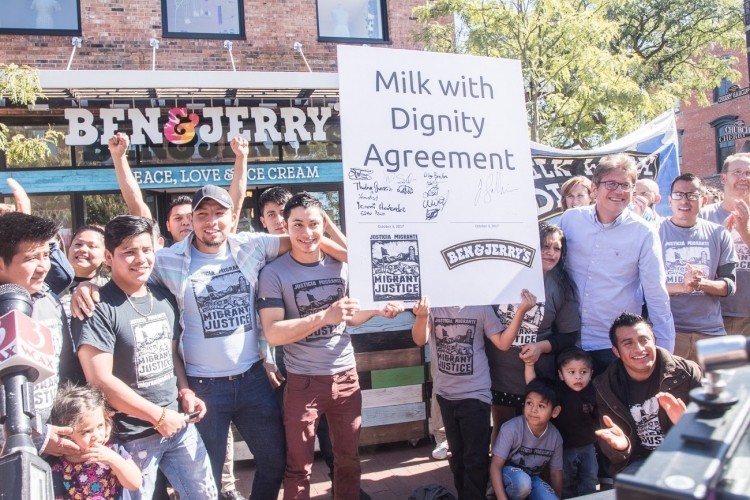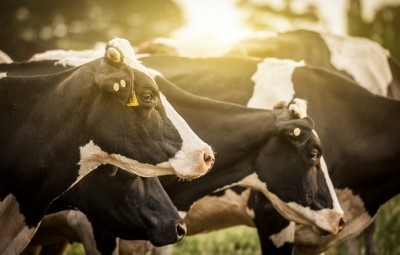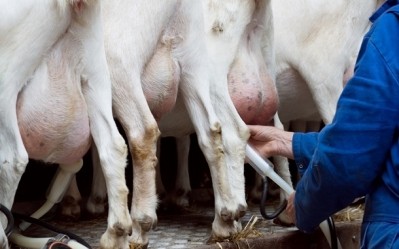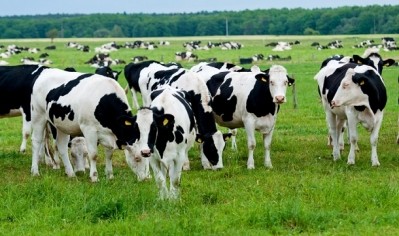Ben & Jerry’s signs ‘Milk with Dignity Program’ to improve dairy farm worker conditions

Ben & Jerry’s is the first company to sign the MD agreement, according to Migrant Justice, which is intent on expanding the program.
Ben & Jerry’s originally agreed to join the program in 2015, but it took both sides a few years to finalize terms and details, which led to multiple protests earlier this year from dairy farm workers demanding better pay and working conditions.
The Vermont-based ice cream maker said it will begin the plan this fall with the goal of eventually sourcing 100% of its milk through the program. Ben & Jerry’s employs 1,200 to 1,500 dairy farm workers at St. Albans Cooperative farms, where it sources all of its cream.
“We recognize the many challenges facing the Vermont dairy farmers today, and we need to do what we can collectively to support the farmers moving forward. We can’t do this without them,” Ben & Jerry’s CEO, Jostein Solheim, said.
Outside of Ben & Jerry’s flagship store in Vermont, farmworker organizer and former dairy worker, Enrique Balcazar, said: “We appreciate that Ben & Jerry’s has taken a leadership role to source its milk in a way that improves working and housing conditions on dairy farms.”
Terms of the MD Program
Under the newly-implemented MD Program, the ice-cream maker will pay a premium for its dairy ingredients to dairy farm workers who have agreed to comply with the Milk with Dignity Code of Conduct.
Major components of the MD Code of Conduct state that participating farms must provide dignified wages and schedules that pay all qualifying workers at least the prevailing minimum wage, plus a bonus from the paid premium to farmers as well as time for rest and leisure during the work day and five paid vacation days. Participating farms must also provide “dignified housing” along with healthy and safe workplaces, according to Migrant Justice.
The premium paid to farmers will help offset the dairy farm’s compliance with code of conduct and allows farmers to pass on a portion of the premium as a bonus to workers, according to the MD Program.
In the MD Program, compliance on the farm is achieved through a partnership and problem-solving approach among farmers, farmworkers, and the Milk with Dignity Standards Council (MDSC), an independent non-profit that works with farmers and farmworkers to achieve compliance with labor standards in the MD Program Compliance Code.








